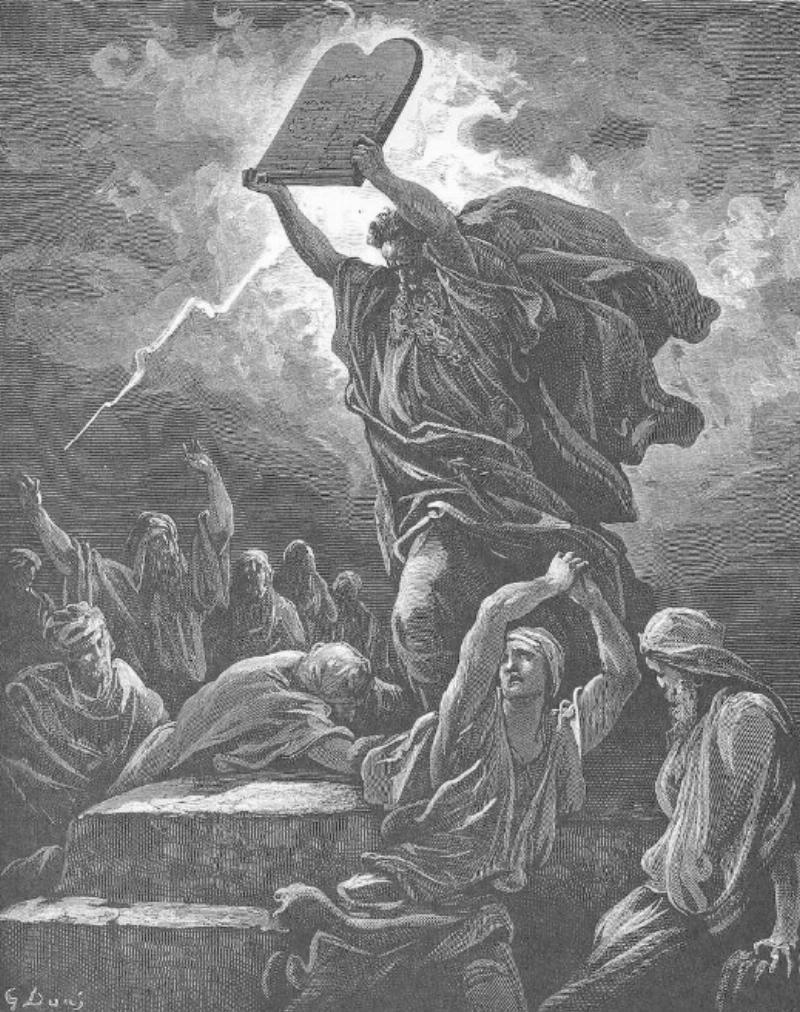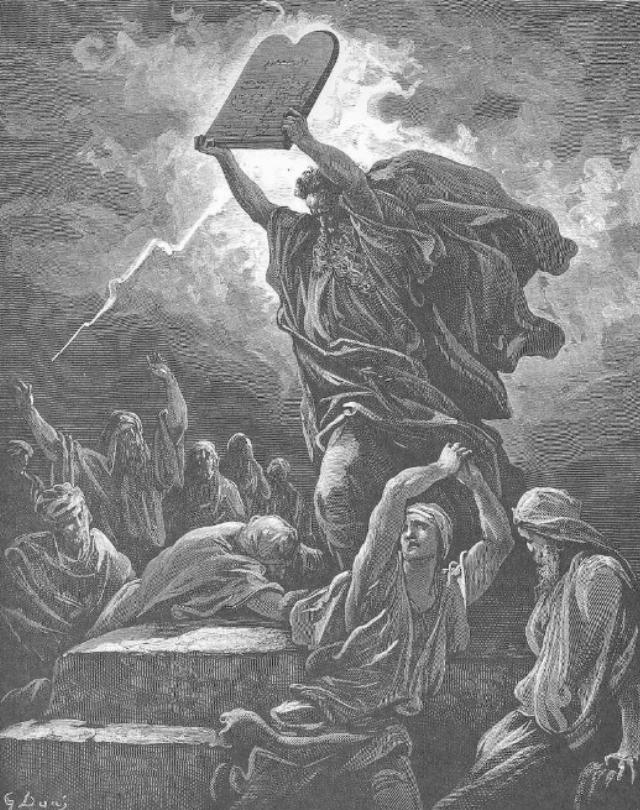


In 1995, Margaret Thatcher wrote an article for Imprimis magazine entitled, "The Moral Foundations of Society." She speculated that the most important problems we have today are those having to do with these foundations. She suggested we look at what has transpired in societies lacking moral foundations, such as those ruled by the totalitarian ideologies of Nazism, fascism, and communism. This advice is especially pertinent today. The efforts of the Left to remove Judeo-Christianity from the public square are knocking the moral foundations out from under us.
Religious principles offer frameworks that guide individual conduct and foster communal harmony. Thus, they serve as cornerstones for human societies. Judeo-Christian values have been particularly influential in shaping Western civilization. Drawn from the Old and the New Testament, they emphasize concepts such as divine accountability, moral absolutes, and communal responsibility. At their core are principles such as the Ten Commandments, the Golden Rule, and teachings on justice, mercy, and love. Together, these values provide a strong foundation for ethical behavior and social unity. Judeo-Christian ethics ground morality in a transcendent source, thereby surpassing human preferences and promoting enduring standards.
By suggesting that morality originates from a divine creator rather than ephemeral human constructs, Judeo-Christian values offer a clear, authoritative basis for ethical behavior. The Ten Commandments establish absolute moral imperatives, arguing that actions like killing or stealing are inherently wrong because they violate God's will. This divine origin provides a stable, enduring anchor and prevents ethics from devolving into relativism where "right" and "wrong" shift with cultural trends or personal whims.
A central concept to this ethical framework is that of human dignity, which is derived from the belief that humans are created in the image and likeness of God. (Genesis 1:27). The principles of equality and respect are therefore underscored by the intrinsic worth of every individual, regardless of status, race, or ability.
Jesus' teachings amplify this through parables like the Good Samaritan (Luke 10:25-37), which emphasizes compassion towards strangers, and the Sermon on the Mount (Matthew 5-7), which calls for forgiveness, humility, and purity of heart. These values encourage self-discipline and moderation, urging individuals to align their personal choices with higher purposes and to resist temptations. The teachings about stewardship and accountability before God emphasize personal responsibility and cultivate virtues like honesty and integrity, essential for trustworthy interactions in daily life.
These principles have influenced legal and ethical systems worldwide. For example, the Magna Carta (1215) and the U.S. Declaration of Independence (1776) reflect Judeo-Christian ideas of justice and inalienable rights. Phrases like "endowed by their Creator" reflect a divine foundation for liberty.
Judeo-Christian ethics undergird human rights movements, such as the abolition of slavery, where figures like William Wilberforce invoked biblical injunctions against oppression (Exodus 22:21). Religiosity is also linked to ethical business practices, demonstrating that Judeo-Christian values correlate with reduced risk-taking and stronger sustainable cultures, as they instill a sense of accountability beyond profit. These principles go beyond guiding personal morality. They elevate societal standards, making ethical behavior a duty owed to God and neighbor.
 Judeo-Christian principles foster social cohesion by emphasizing community, mutual support and shared purpose. The Scriptural admonitions to "love your neighbor as yourself" (Leviticus 19:18 & Matthew 22:39) encourages empathy and solidarity and thus serve as a blueprint for interpersonal relations. The family is emphasized through teachings on honoring one's parents and nurturing children, showing it to be the basic unit of society. Judaic concepts such as tzedakah (charitable giving) and the Christian principle of agape (selfless love) promote welfare for the vulnerable, such as orphans, widows and the poor. (Deuteronomy 15:7-11 & James 1:27). These build trust and interdependence, reducing social fragmentation.
Judeo-Christian principles foster social cohesion by emphasizing community, mutual support and shared purpose. The Scriptural admonitions to "love your neighbor as yourself" (Leviticus 19:18 & Matthew 22:39) encourages empathy and solidarity and thus serve as a blueprint for interpersonal relations. The family is emphasized through teachings on honoring one's parents and nurturing children, showing it to be the basic unit of society. Judaic concepts such as tzedakah (charitable giving) and the Christian principle of agape (selfless love) promote welfare for the vulnerable, such as orphans, widows and the poor. (Deuteronomy 15:7-11 & James 1:27). These build trust and interdependence, reducing social fragmentation.
Religious observances in Judaism and Christianity create regular opportunities for collective reflection and bonding. They reinforce shared beliefs through prayer, scripture reading, and fellowship, further enhancing cohesion. In the past, these have unified diverse groups. Early Christian communities provided mutual aid networks in the Roman Empire, offering support during persecutions and plagues. Today, faith-based organizations like Catholic Charities or Jewish federations deliver social services that strengthen communal ties.
Judeo-Christian principles also emphasize forgiveness and reconciliation, as seen in Jesus' model of turning the other cheek (Matthew 5:39). This helps resolve conflicts, preventing grudges from eroding the social fabric.
Judeo-Christian values have shaped national identities and legal systems, promoting cohesion through common moral language. In the United States, Judeo-Christianity informs debates on family structure and sanctity of life, fostering a sense of shared heritage. European societies have developed welfare states rooted in biblical calls for justice and mercy, although they are seeing the limits to these systems when subjected to uncontrolled immigration and lack of accountability. Nevertheless, without such foundations, societies risk atomization, where individualism overrides collective well-being.
Critics, especially on the Left, argue that religion is not essential for morality or cohesion. Atheists and skeptics contend that religious ethics can justify harm. They cite historical events like the Crusades or Inquisition, where divine mandates were distorted for power. They claim secular frameworks are superior, relying on reason, empathy, and humanism rather than faith. Perhaps they should read up on the French Revolution.
Secular morality argues that ethics arise from the human needs for survival and cooperation, such as not harming others so as to maintain tribal harmony. Utilitarianism claims we strive to maximize happiness, while Humanism emphasizes compassion and rights through rational discourse. Proponents of these precepts assert that secular ethics are more adaptable and inclusive, and avoid the dogmatism that can inhibit progress. Millions have abandoned organized religion in the last half-century and these secular ideologies can fill the void. Some, however, have noted the lack of satisfying alternatives for communal rituals or transcendent meaning. Perhaps the rise of protests and environmental activism are substituting for rituals and transcendence.
These critiques overlook the ways in which Judeo-Christian values have evolved to address injustices, inspiring reforms like the civil rights movement led by Martin Luther King Jr., who invoked biblical justice. Although secular systems are ostensibly rational, they can weaken without an absolute anchor. This can lead to moral relativism where ethics bend to majority rule or power dynamics. There is evidence to suggest that religious societies exhibit higher cohesion through shared rituals and foundations based in transcendent meaning.
In summation, Judeo-Christian values provide a foundation for ethical behavior by offering divine imperatives that promote dignity, responsibility, and virtue. They enhance social cohesion through community-building rituals, practices and shared moral commitments. Their centuries-long influence on Western laws, rights, and institutions demonstrates their enduring relevance, even as secular alternatives gain traction.
The numerous historical and contemporary examples of benefits affirm their role in sustaining civilized societies. In an era of moral ambiguity, rediscovering these principles could reinvigorate our dialogues and strengthen our communal bonds.
Image: Gustave Doré
